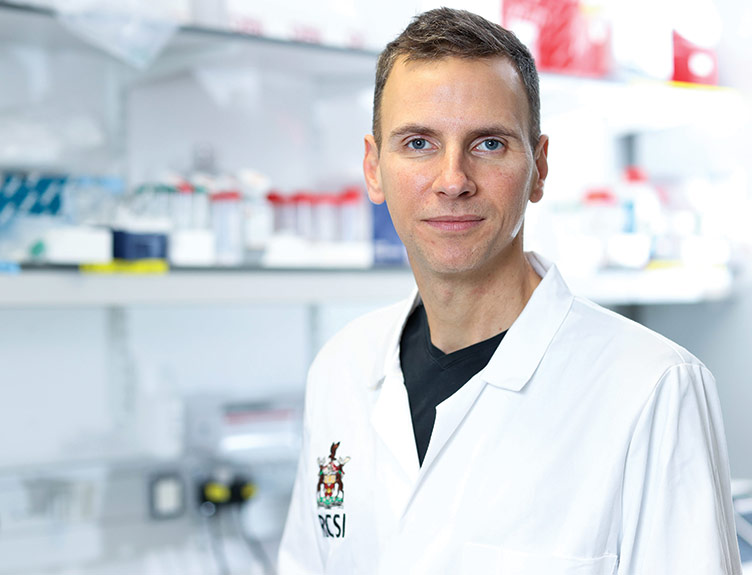RCSI President warns of serious risk of de-skilling newly-appointed surgeons
The President of RCSI Professor Patrick Broe has warned there is a serious risk of de-skilling newly appointed surgeons in Irish hospitals. Professor Patrick Broe was speaking to more than 400 surgeons at the annual Charter Day surgical meeting in RCSI today.
Giving his Presidential Address, Prof. Broe said, "There have been reports in the media highlighting the serious problem in recruiting high-quality specialists of all kinds to come home to Ireland to practice. In surgery, the situation is even more complex and is not just about the reduction in pay. It is also due to the lack of basic theatre resources, rolling theatre closures and the lack of protected beds. This group of surgeons were appointed under a contract designed around the presence of co-located private hospitals, but since these hospitals do not exist, a surgeon's week is not fully occupied. In practice, we witness surgeons appointed under these contracts only being able to work three to four days per week and sometimes even less. This is not appropriate and it is not the correct beginning to one's consultant career. It is also very bad value for the tax payers' money.”
The Clinical Programme for Elective Surgery has addressed the issue and demonstrated clearly that ring-fencing and protecting surgical beds and guaranteeing access to theatres is essential in order to treat surgical patients who need planned surgery. In doing these elective lists trainees can be supervised and surgeons can maintain their own skills.
Prof. Broe added: "We know there is spare capacity in some of the private hospitals and we should be working to treat patients in a planned and regulated fashion and use these resources to their full capacity, rather than the current system of feverish activity and referral of patients elsewhere to meet a rapidly approaching target deadline.”
In July 2013, RCSI launched the new Surgical Training Pathway, which is progressing very well. In his address the President highlighted some of the issues of the initial six months of the project and acknowledged the input and support of all the specialties as well as the Academic Heads of Department.
RCSI is a community of all its Fellows from all specialties and the programme for Charter Day is aimed at the widest possible participation with specialty parallel sessions running in Colorectal, Upper gastrointestinal and Vascular surgery, Otolaryngology Head & Neck and a joint session between Trauma & Orthopaedics and Plastic Surgery.
The Johnson & Johnson Lecture ‘The Importance of the Complete Response Concept for the Future of Rectal Cancer Management' will be given by Professor Richard J. Heald, Emeritus Professor of Surgery at Southampton University and Basingstoke Hospital.
A keynote lecture on ‘Professionalism: An opportunity or threat for the Royal Colleges' will be delivered by Associate Professor Michael Hollands, President of the Royal College of Surgeons, Australia.
The day will conclude with the 89th Abraham Colles Lecture. Professor Donald E. Low, Director of the Esophagel Center of Excellence, Digestive Disease Institute, Virginia Mason Medical Centre, Washington, USA will deliver the lecture ‘Evolution in Outcomes, Process and Quality Measures in the Treatment of Esophageal Cancer.
Professor Richard Heald and Professor Donald Low will both be conferred with an Honorary Fellowship of RCSI at a ceremony in the College on Saturday evening.
Prof. Broe concluded: "This weekend marks the 230th anniversary of the foundation of RCSI by Royal Charter. The Charter Day meetings provide the surgical community with an opportunity to come together to discuss the challenges, issues and new developments within surgery."



